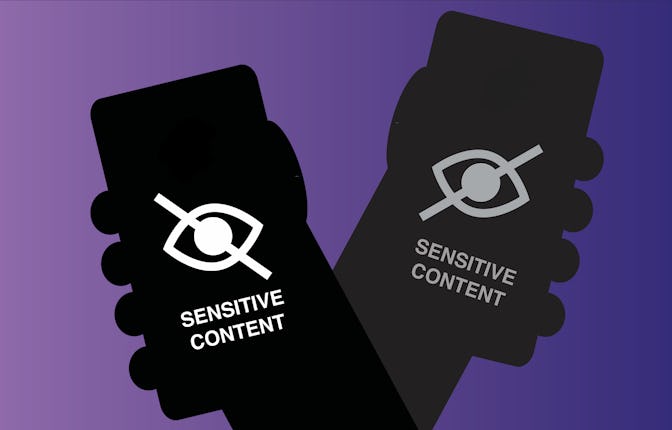"Sextortion" rose during the pandemic — especially for men
Experts feared from early on that there’d be an uptick in revenge porn and sexual blackmail.

Experts feared from early on that the pandemic would increase instances of revenge porn and sexual blackmail. Unfortunately, it seems that they were right. According to a new study, sexual blackmail increased during the pandemic — and men were disproportionately targeted.
The new study, which was published this morning in the journal Victims & Offenders, surveyed about 2,000 Americans. Researchers asked participants if they had ever been victims of sextortion, which they defined as “the act of threatening to expose a nude or sexually explicit image in order to get a person to do something such as send more nude or sexually explicit images, pay someone money or perform sexual acts,” according to the study. Basically, scientists asked people if anyone had ever tried to use their nudes to get them to send money or more nudes — a.k.a. blackmail.
According to the research, almost 7% of respondents reported having been the targets of sexual blackmail. Participants were asked to report whether they had been targets of sextortion before the pandemic, after the pandemic, or not at all and their answers were coded in order to analyze when they had been targeted. Surprisingly, they found that men were more likely to have been targets. The data showed that 4.5% of men and 2.3 percent of women said they’d experienced sextortion since the start of the pandemic.
Weird, right? I definitely assumed the opposite, since women are generally more likely to be sexually victimized. Apparently the researchers found it unusual as well, and had some possible reasons why the data yielded these results.
“It is possible that men had more time to spend online than women during the pandemic,” Asia Eaton, an associate professor of psychology at FIU and lead author of the study, told EurekAlert. Eaton also added that men may have been more likely to be targeted because they have a tendency to be “less selective” when dating. According to other recent research, men are generally more likely to fall prey to online romance scams, like catfishing.
That doesn’t mean that everyone else is safe from digital sextortion. The study also found that LGBTQ+ folks were three times more likely than straight people to be targeted and Black and Native women were seven times more likely to be targeted than white women. The research also sadly confirmed that people who had been victims of intimate partner violence before the pandemic were more likely to be targets of sexploitation.
Rates of sexual extortion were highest in young people, from age 19 to 29, which researchers attributed to the fact that this age group also tends to be more likely to use technology and also to be sexually experimental. But there’s actually nothing new about sexual blackmail.
According to historians, sexual blackmail was used as a way to bully gay men in 18th century Britain, it flourished during the 20s and 30s in America, and it eventually declined with the sexual revolution of the 1960s. The digital revolution made it a lot easier both to create sexual media and also to blackmail people anonymously. Unfortunately, despite the many ways we supposedly advanced society, sextortion doesn’t seem to be going anywhere.